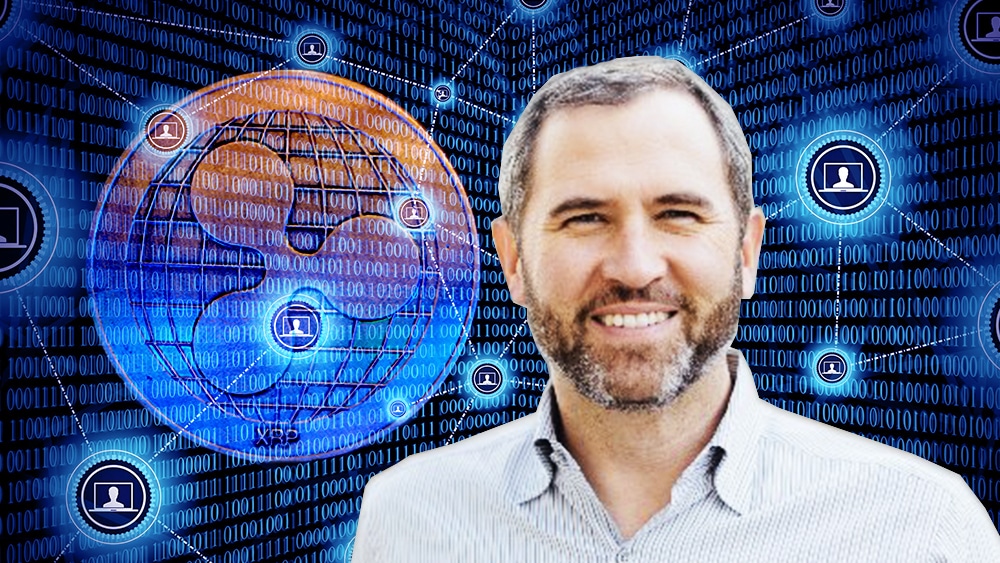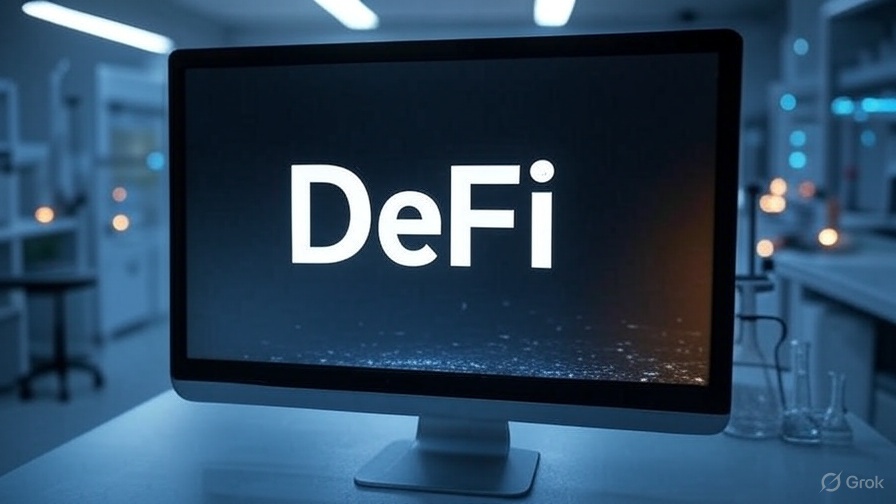There is frequent debate about whether bitcoin (BTC) is primarily an electronic payment system or “digital gold” and, currently, the second position seems to be prevailing. But Román Martínez has a clear and field-proven stance: BTC’s true potential is unleashed when it flows from hand to hand, empowering those left behind by the traditional system.
For the co-founder of Bitcoin Beach—the pioneering project that catalyzed the adoption of bitcoin in El Salvador—, Circular economies are the purest and most powerful manifestation of Bitcoin.
“Circular economies are the most important projects today that are leading education, that are leading adoption, but above all that are demonstrating the true potential of bitcoin,” said Martínez in an in-person conversation with CriptoNoticias during the conference. Accelerating Bitcoinheld in the Paraguayan capital.
The event, the first of its kind in Paraguay, served as a stage for ecosystem leaders shared visions and experiences. Martínez, a central figure in global community adoption, was impressed by the local scene.
“It is impressive to see a community that already exists, a community of bitcoiners here in Paraguay,” he commented on his first impressions. “I think this conference is going to be the first starting point for many things that are going to happen here.”


To understand Martínez’s conviction, it is necessary to return to 2019to a small coastal community in El Salvador called El Zonte. Bitcoin Beach was born therea project that sought to use the digital asset to solve everyday problems.
What began as a local experiment became the proof of concept that, in 2021, would give President Nayib Bukele the confidence to declare bitcoin legal tender in the country.
“We are the Bitcoin Beach project, which was the first circular economy in a bitcoin ecosystem in the world,” Martínez said. “As a result, in 2021, bitcoin became legal tender in El Salvador.”
The impact transcended Salvadoran borders. El Zonte’s model became a beacon for other communities facing similar problems of financial exclusion.
“The most beautiful and most exciting thing about what has happened is seeing leaders around the world,” he noted proudly. “Today we have an average of 70 projects, 70 circular economies around the world that have been inspired by the Bitcoin Beach model to replicate the example.”
He mentioned specific cases such as Praia Bitcoin in Brazil, Motiv in Peru, Bitcoin Jungle in Costa Rica or Bitcoin Lake in Guatemala, among many others.
The movement is expanding with remarkable speed, especially in continents like Africa, where the lack of traditional banking infrastructure is a barrier to development. «We have an average of 30 projects in Africa alone that have applied to the grants [subvenciones]”, revealed.
The key to success and its replicability, according to Martínez, is that bitcoin’s value proposition is universal. “The most important thing is that bitcoin as a tool, if it works in El Zonte, if it works in Brazil, it will work all over the world, because in the end there are the same problems: that there is no financial inclusion,” he stated. “We are talking about billions of people who do not have, for example, a bank account.”


At a time when institutional giants and market analysts emphasize bitcoin’s function as a store of value—a “digital gold” to protect against inflation and monetary devaluation—and many criticize those who encourage spending bitcoin, The approach of Bitcoin Beach (and the other circular economies) seems to go against the grain.
Asked by this medium about this apparent contradiction, Martínez was blunt. «I think that should not even be a discussion. “Bitcoin has all the properties of money,” he argued. «Bitcoin can be a digital asset, it can be a store of value, but it can also be a medium of exchange. In other words, bitcoin was created to be money.
Remembering Satoshi Nakamoto’s original vision of a “peer-to-peer electronic cash system”Martínez defends that both functions are not exclusive, but complementary. Limiting bitcoin to just one of its properties is underestimating its transformative capacity.
“If bitcoin just stays and is an asset that stores value, at the end of the day bitcoin is not playing the role that it was designed for, and it was designed for everything.”
To illustrate the power of financial inclusion that bitcoin enablesMartínez shared an anecdote that becomes a powerful parable.
«I always say this: El Zonte, before bitcoin, was already touristy. We looked at the tourist who came and stayed in a nice hotel. At the hotel I could pay with a credit card, but when I went out for a walk through the community I found the man who sells coconuts on the street,” he began to relate. The tourist wanted to buy, but he only had a card. “The man looked at him like, ‘I don’t even have a bank account, so how can I do that?'”
That simple interaction represented an invisible but insurmountable barrier that excluded the local seller from an important part of the tourism economy. Bitcoin demolished that barrier.
“And today we see the same tourist who comes to El Zonte, stays in a nice hotel, goes out into the street and says: ‘Can I buy you a coconut?’ ‘Yeah’. ‘Can I pay you with bitcoin?’ The man says: ‘Yes, because at the end of the day you only need a smartphone with internet and we can do the same thing that people do in the United States with their credit card,'” Martínez concluded.
“I think that financial inclusion is the most beautiful thing we are seeing in the communities, and we are also seeing how bitcoin is connecting the world financially.”
The ultimate goal of a circular economy is to create an ecosystem where it is possible to live entirely in the bitcoin standard: earn, spend and save in the digital currency without having to resort to fiat money. For many, this sounds like a distant utopia. For Martínez, it is a palpable reality.
«In Honduras, for example, in Próspera, you can now name your company entirely in bitcoin, if you want. In El Salvador, bitcoin is money. We use it for everything, to buy a house,” he explained. “There are many people who live in El Salvador whose salary is entirely in bitcoin and they do not have the need to convert it from bitcoin to fiat.”
While he acknowledges that it won’t be easy to see many other countries follow El Salvador’s bold step of adopting bitcoin as legal tender, he does anticipate a proliferation of these sovereign communities. “We are going to see more circular economies, more communities where you can travel or live in a Bitcoin Standard.”
Regarding the political future of El Salvador and the possible risk that an upcoming government will reverse the advances made regarding bitcoin, Martínez seemed calm. «I don’t believe it because at the end of the day bitcoin does not depend on a government. “Bitcoin is decentralized,” he stated, praising the figure of President Bukele as a “visionary leader” who understood the potential of the digital asset to position his country on the world map.
The focus of Bitcoin Beach is no longer only on El Zonte, but on the dissemination of its knowledge. “Today we are focused on sharing all the learnings we have had about what it means to create a circular economy,” Martínez said.


Through grant programs and a fellowship (exchange program) that brings leaders from around the world to El Salvador, They seek to accelerate the creation of new circular economies.
The immersive experience, according to him, is essential. “It’s different when you wake up and you can buy with bitcoin from the first coffee to the pupusa you’re going to eat at night.”
For Martínez, the technological tool goes hand in hand with an indispensable pillar: financial education. “If we don’t teach financial education, people’s lives will always depend on something or someone else,” he reflected. Bitcoinhe argues, forces people to ask fundamental questions about the nature of moneya topic absent in formal education.
Finally, he sees the current movement, with the entry of giants like BlackRock, not as a threat, but as an unprecedented validation and opportunity for the common individual. “If people understood who BlackRock is and the power they have, and if they are buying bitcoin, we should all run and try to buy the largest number of satoshis we could.”
Your long-term vision is clear and ambitiousdrawing a parallel with the communications revolution. «That effect that the Internet had for communications, how the Internet connected the world, we are going to see it through Bitcoin. And Bitcoin is going to be that internet of money,” he projected. “And we’re going to be connected financially.”
Before concluding, he left a final message for the readers of CriptoNoticias, a principle that is almost a mantra in the ecosystem: “In bitcoin there is a very popular saying: ‘Don’t believe it, verify it.’ Always have questions, don’t believe everything they say, verify, but learn about Bitcoin.






Leave a Reply